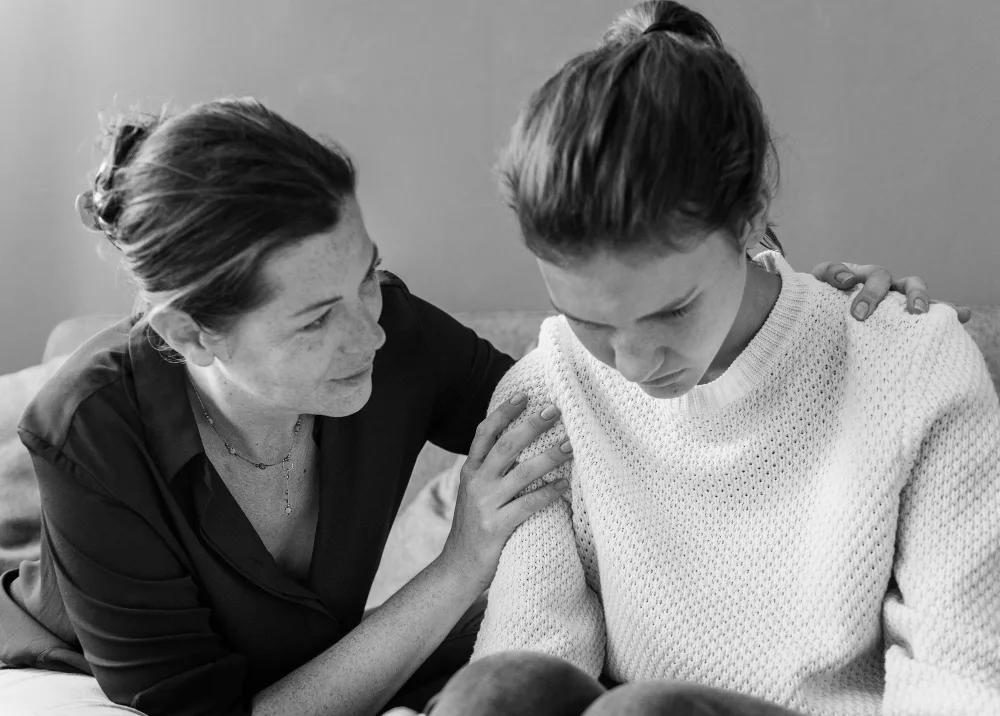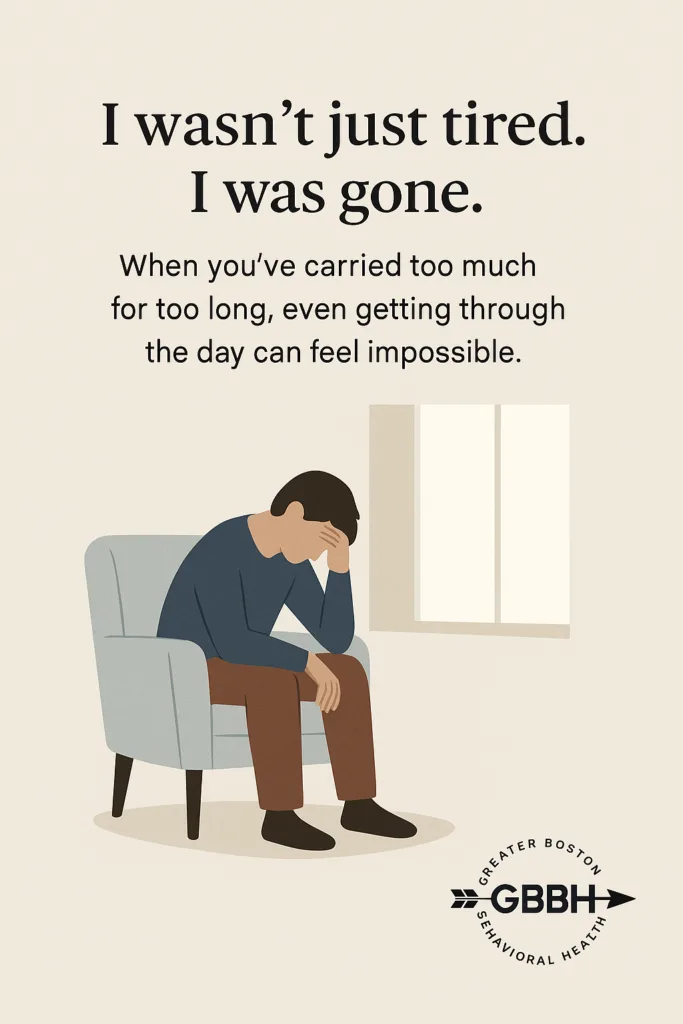I used to tell myself I was just tired. That the reason I couldn’t focus, couldn’t sleep right, couldn’t remember if I’d eaten—was just because life was hard.
And life was hard. My partner was in active addiction, and most days felt like a storm I had to quietly steer through. While he slept it off or spun out, I kept the lights on. Handled the bills. Lied to his boss. Reassured his family. Smiled at mine. And inside, something hollow was growing.
The day it finally hit me, it wasn’t dramatic. It was a Wednesday. Mid-morning. I was standing in the kitchen holding my coffee, staring out the window. And for the first time, I realized: I wasn’t just tired. I was gone.
Depression Creeps In When You’re Not Looking
When we think of depression, we picture sadness. Crying. Staying in bed for days. But that’s not how it showed up for me.
Mine was silent. It looked like forgetting birthdays. Letting dishes pile up. Zoning out at red lights. Feeling nothing when something good happened. Feeling even less when something bad did.
It was months of living beside someone else’s chaos, trying so hard to be okay that I didn’t notice I wasn’t anymore.
If you’re reading this and you’ve been carrying too much for too long—especially if someone you love is struggling with addiction—you might not notice you’re drowning until the water’s already in your lungs.
Depression Doesn’t Always Break Things—Sometimes It Just Numbs Them
I didn’t fall apart in a dramatic, movie-scene way. There were no ER visits, no screaming fights. Just small signs—missed calls, untouched dinners, plans canceled last minute.
Depression is quiet like that. It doesn’t always break down the door. Sometimes it slips through the cracks.
I thought I was being strong. But what I was really doing was disappearing.
And when you love someone who’s sick, it can feel selfish to even admit you’re hurting too. But that pain matters. You matter.
Getting Help Wasn’t Easy—But It Was a Relief
It took a close friend sitting me down and saying, “You don’t look okay,” for me to finally talk to someone. Even then, I felt like a fraud in the therapist’s office.
“I’m not the one with the problem,” I said. “He is.”
But the therapist didn’t push back. She just nodded. And then she asked, “But how are you sleeping? Eating? Feeling?”
I couldn’t answer. I cried instead.
It was the first time in a long time someone asked how I was doing—and actually meant it.
That’s when I started looking into depression treatment in Boston. Not because I wanted a label. But because I wanted a way back to myself.
What Help Looked Like For Me (And Could for You)
I didn’t check into a hospital. I didn’t start medication right away. For me, help looked like this:
- Therapy once a week. A space where no one asked me to defend him or explain my loyalty. Just a place to be honest about how much I was hurting.
- Identifying burnout. Realizing that caregiving isn’t just for parents or professionals—when you love someone in crisis, you become one too.
- Making small returns. Cooking again. Reading. Walking without my phone. It sounds simple, but those were the first steps back to myself.
And I learned something I wish someone had told me earlier: you can love someone who’s struggling—and still need help for yourself.
If You’re in Boston, You’re Not Alone
Greater Boston Behavioral Health offers depression treatment that’s built for real people in complex situations. You don’t have to be falling apart to get support. You don’t have to have all the right words.
If something in your chest feels off—like life is happening around you and not with you—it’s okay to ask for help.
Especially if you’ve been the one holding everything together. That kind of weight adds up.
Ready to Talk?
Call Greater Boston Behavioral Health at (888)301-8072.
We’ll listen. We’ll help you figure out if what you’re feeling is something deeper—and what to do next. No pressure. Just a conversation.
Frequently Asked Questions
What are the signs that I might be experiencing depression?
Depression can look different for everyone, but common signs include:
- Persistent fatigue, even after rest
- Lack of interest in things you used to enjoy
- Changes in sleep or appetite
- Trouble concentrating or making decisions
- Feeling hopeless, numb, or emotionally flat
- Withdrawing from friends and family
If these sound familiar, you may benefit from speaking with a mental health professional.
Can depression develop from being around someone with addiction?
Yes. Living with or loving someone in active addiction can lead to chronic stress, anxiety, and depression. You may constantly feel like you’re in crisis mode, which takes a toll emotionally and physically. It’s not selfish to seek support for yourself—it’s necessary.
What kind of depression treatment is available in Boston, MA?
At Greater Boston Behavioral Health, we offer:
- Individual therapy
- Group support
- Psychiatry and medication management
- Integrated care for co-occurring stress or trauma
Your treatment plan is personalized based on your needs, goals, and comfort level.
Do I need a diagnosis to start treatment?
No diagnosis is required to begin therapy or seek support. Many people start with a simple conversation. From there, our team can guide you toward the right level of care—at your pace.


